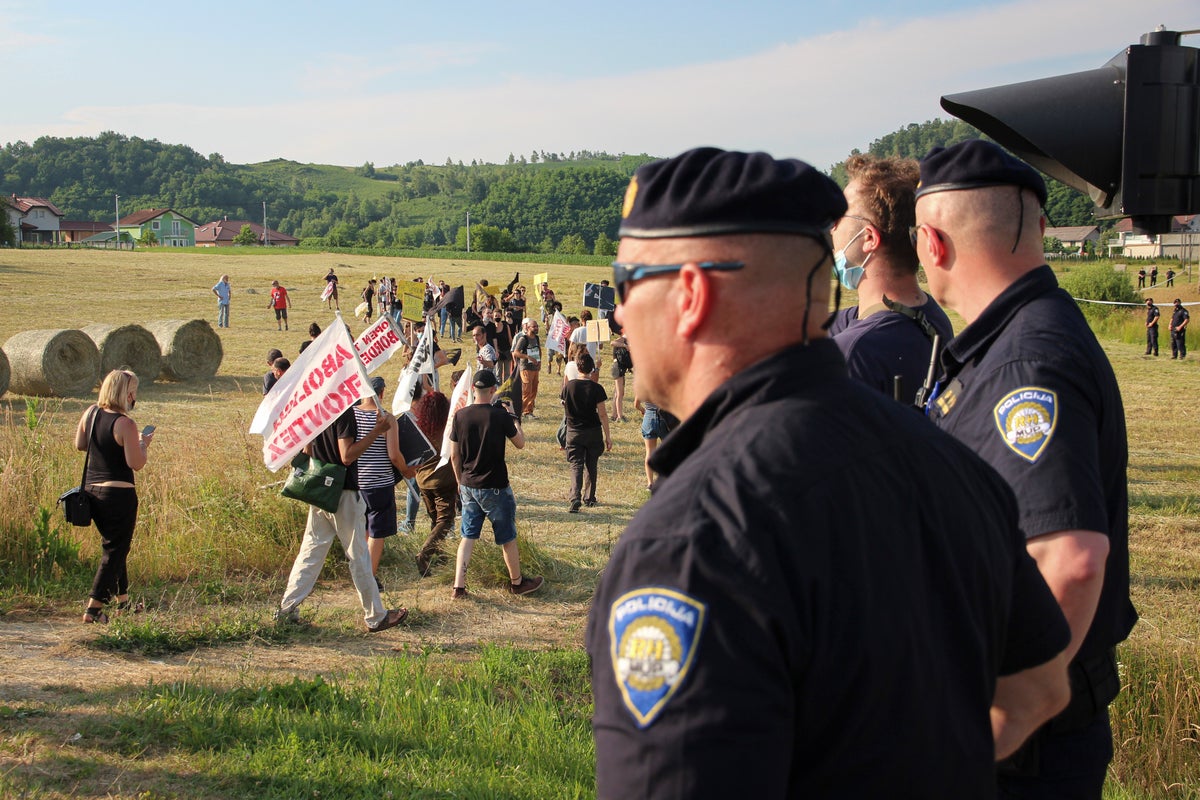
An independent investigative group on Thursday accused Croatian officials and police of using a clandestine WhatsApp group to share sensitive information about migrants trying to enter the country.
It said it believed many of those discussed were later forcibly removed from the country, which is illegal under international treaties. Croatian police denied any wrongdoing.
The Lighthouse Reports group, which spearheaded collaborative investigation among journalists at various European news organizations, said in a report published on Thursday that it received 60 leaked screenshots and managed to identify 33 participants in the encrypted group used between August 2019 and February 2020.
“We found that among them were Croatian high-ranking officials," the report, “Inside Croatia’s Secret WhatsApp Group,” said. “The WhatsApp group was used to exchange information about apprehensions of more than 1,300 people of mostly Afghan, Pakistani and Syrian nationality.”
The messages often included photos of individuals, their faces clearly visible, some forced to lie face down on the ground or remove their shoes. The group was also used to exchange information about journalists visiting the border area, the report said.
It added that the WhatsApp group "sat outside any official means of communication and away from the usual monitoring procedures, and there are strong indications that the foreign nationals referenced in the messages went on to be subject to illegal pushbacks.”
Croatian officials said they could neither confirm nor deny such communication. Interior Minister Davor Bozinovic confirmed the existence of the police operation Corridor, which is mentioned in the report and which he said was designed to curb illegal migration and people smuggling.
“We cannot know if these messages are authentic,” said Bozinovic. “Corridor II-West is no secret operation. It is an action carried out against migrant smugglers and intensively in the past five years.”
In a separate statement on Thursday, the Croatian Interior Ministry reiterated that the police focus on people smugglers and denied mistreatment of migrants. The use of communication among officers is not forbidden, the statement insisted, adding that all police work is officially documented.
“The fact that some information was exchanged via encrypted application does not mean that the practice of police officers is in any way incriminating or illegal,” said the Interior Ministry statement.
Croatia, an EU member state which joined the travel-free Schengen area this year, has repeatedly faced accusations of pushbacks of migrants, a practice that is illegal under international refugee treaties.
Pushbacks are the act of preventing people from exercising their right to apply for international protection — if they fear for their lives or that they may be persecuted — often by use of force or collective expulsions.
Migrants seek to enter Croatia from neighboring Bosnia or Serbia. They initially come from Turkey or Greece, go to North Macedonia and Serbia and Bosnia and then on toward Western Europe along what is known as the Balkan land route.
The Lighthouse report was done in collaboration with Der Spiegel, Nova TV, Novosti weekly, Telegram news portal and ORF.
In 2019, Lighthouse Reports published video footage of uniformed men in balaclavas beating groups of migrants, saying they were Croatian police. That release resulted in an investigation and removal of police officers from duty.







